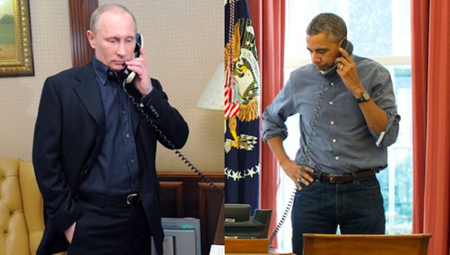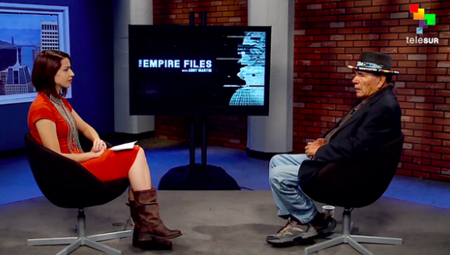Bulletin #718
Subject
:
LIKE GETTING AWAY WITH MURDER . . . ?
15
October 2016
Grenoble, France
Dear
Colleagues and Friends of CEIMSA,
Etienne
de la Boétie (1530-1563) wrote The Politics of Obedience :
Discourse on Voluntary Servitude in 1552-53, at the age of 22. In this
terse monograph, he went beyond the traditional discussion of how power is attained
and how it is used. Many writers had discussed tyranny in terms of the
usurpation of power or government actions against the laws –customary laws, divine laws, or natural laws ‘for the common
good’. The young Boétie’s original contribution to
the study of government was to find the common denominator of different kinds
of tyranny.
There
are three kinds of tyrants: some receive their proud position through elections
by the people, others by force of arms, others by
inheritance.
. . .
For
although the means of coming into power differ, still the method of ruling is
practically the same: those who are elected act as if they were breaking in
bullocks; those who are conquerors make the people their prey; those who are
heirs plan to treat them as if they were their natural slaves.(p.21)
Boétie focuses
on the victims’ tolerance of the abuse power, indeed their complicity, due in
part to their mental befuddlement, if
we can bring in the writings of another young scholar, Baruch Spinoza (1633-1677) to clarify
this phenomenon. Mediating between the ideas of these two original thinkers, is the playwright William Shakespeare (1564-1616)
and specifically his tragedy, Hamlet, Prince of Denmark , which was written
sometime between 1599-1601.
Re-reading William Shakespeare’s Hamlet is, indeed, instructive today.
World famous neurologist, Antonio Damasio,
recommended The Bard’s play in the concluding chapter of his book, Looking
for Spinoza. This is the 400th anniversary year of
Shakespeare’s death in 1616, and this particular play speaks to the pathos
under which we are now living. The young Prince Hamlet knows something that no
one else in the kingdom suspects, namely that his father, the King of Denmark,
was murdered by his stepfather, Claudius, the new king and husband of his
mother. Hamlet cannot communicate this idea in the hegemonic atmosphere of the
castle, and he goes half mad trying to express this revelation, which was
brought to him by his father’s much troubled ghost.
The neurologist makes much use of
Spinoza, frequently citing segments from The
Ethics. (published posthumously in 1677). A
few of the excerpts below are relevant to Damasio’s
physiology of the body (which includes the
circulatory systems of vessels and nerves), in its production of the human
mind, as Shakespeare exemplified in Hamlet’s tragic loss.
The
Ethics, Part I, 7th Definition:
That
thing is said to be free (liber) which exists solely from the necessity of its own nature,
and is determined to action by itself alone. A thing is said to be necessary
(necessaries) or rather, constrained (coactus),
if it is determined by another thing to exist and to act in a definite and
determinate way.(p.31)
The
Ethics, Part II, Propostion 12 :
Whatever
happens in the object of the idea constituting the human mind is bound to be
perceived by the human mind; i.e. the idea of that thing will necessarily be in
the human mind. That is to say, if the object of the idea constituting in the
human mind is a body, nothing can happen in that body without its being
perceived by the mind.(p.71)
The
Ethics, Part II, Propostion 13 :
The
object of the idea constituting in the human mind is the body –i.e. a definite
mode of extension actually existing, and nothing else.(p.71)
The
Ethics, Part III, Propostion 1:
Our
mind is in some instances active and in other instances passive. In so far as
it has adequate ideas, it is necessarily active; and in so far as it has
inadequate ideas, it is necessarily passive.(p.104)
Corollary :
Hence
it follows that the more the mind has inadequate ideas, the more it is subject
to passive states (passionibus); and, on the
other hand, it is the more active in proportion as it has a greater number of
adequate ideas.(p.105)
The story line is well known : the young Hamlet is incoherent, even when he talks
to the attractive Ophelia, daughter of the Lord Chamberlain, Polonius. His
madness is of concern to everyone and his stepfather invites a group of actors
to the castle to distract the disturbed youth. Hamlet’s incoherence and
attempts at irony is picked up by the actors, and when they are invited to
perform a play they reenact the conspiracy of his father’s murder. Claudius and
the Queen grow agitated and stop the performance. This is proof to Hamlet, but
he hesitates to strike; instead he confronts his
mother and in a fit attacks a figure hiding behind a curtain in the room. It is
Polonius, Ophelia’s father, who is trying to discover the truth. He is killed
by Hamlet. Hamlet is sent to England to calm down, and while he is away Ophelia
commits suicide. Hamlet returns to the funeral and is challenged to a duel by
Ophelia’s brother, Laertes. They agree to fight, but
not to the death. Laertes, however, puts poison on
the tip of his rapier. And King Claudius adds poison to a drink he intends to
offer Hamlet at the end of the friendly duel. In the end, the young men’s
rapiers get switched, and it is Laertes who receives
the poisoned wound; and in the confusion, it is the Queen who drinks the
poisoned wine intended for Hamlet; then Claudius is killed by Hamlet before he
expires. The play is over and the soldiers haul the dead bodies away under the
military salute of rifle fire.
The physiological lesson from
Shakespeare’s play, drawn by Damasio, is that our
‘gut emotions’ and our ‘cerebral feelings’ are components which produce the
mind, whether we successfully communicate our emotions or not. The mind is the
product of the body and its various organs (including the brain and the
peripheral nervous system); and the top priority of every healthy organism –
like every healthy cell in our body—is self-preservation.
In Spinoza’s words, to maximize joy and to reduce sorrow --in a myriad of contexts, in an infinite number of ways-- is an essential function of the
body’s mind.
The very first foundation of virtue
is the endeavor (conatum) to preserve the
individual self, and happiness consists in the human capacity to preserve its
self.(The Ethics, Part IV, Proposition 18)
Spinoza goes on to suggest that an
action which might be personally beneficial but would harm others is “not good”
because, according to his systemic understanding, “harming others always haunts
and eventually harms the individual who causes the harm.”(p.174)
Our good resides especially in the
friendship that links to other humans and to advantages for society.(The Ethics, Part V, Proposition 10)
Our personal structure includes the
“biological mandate” to survive and to maximize pleasurable rather than painful
survival, but we are also social beings, bound by social and cultural
conventions.
For example, the law that all bodies
impinging on lesser bodies, loose as much of their own motion as they
communicate to the latter is a universal law of all bodies, and depends on
natural necessity. So, too, the law that a man in remembering one thing
straightway remembers another either like it, or which he had perceived
simultaneously with it, is a law that necessarily follows from the nature of
man. But the law that men must yield, or be compelled to yield, somewhat of
their natural right, and that they bind themselves to live in a certain way,
depends on human decree. Now, though I freely admit that all things are
predetermined by universal natural laws to exist and operate in a given, fixed,
and definite manner, I still assert that the laws I have just mentioned depend
on human decree.(from A Theologico-Political Treatise, 1670)
The 13 items below depicting current events
at the same time as the US presidential “debates” are now being televised and
widely discussed offer CEIMSA readers the challenge to participate in the
construction of an environment conducive to human growth and happiness. The
hysterical behavior of would-be leaders and the pathologies of everyday life
militate against the self-fulfillment and well-being of all of us, but
overcoming adversity remains the sine qua non of good health for every
organism, large and small. What remains to be done is to create new social and
cultural conventions, more adapted to our human needs.
Sincerely,
Francis
Feeley
Professor
emeritus of American Studies
University
Grenoble-Alpes
Director
of Research
University
of Paris-Nanterre
Center
for the Advanced Study of American Institutions and Social Movements
The
University of California-San Diego
a.
From:
Mark Crispin Miller
Sent:
Tuesday, October 11, 2016
Subject:
On Trump/Clinton, "conspiracy theory," media baloney and much else,
from CounterPunch Radio!
Mark Crispin Miller – Episode 56
https://store.counterpunch.org/mark-crispin-miller-episode-56/
Audio Player
This week CounterPunch
Radio host Eric Draitser sits down with author and
academic Mark Crispin Miller to discuss the controlled corporate media and its
grip on discourse in the United States, conspiracy theories versus conspiracy
facts, US elections as both farce and illusion, and much more. Eric and Mark
begin with a discussion of the history of media propaganda, and how the corporate
media we know and loathe came to be the monolithic servant of power it is
today. The conversation then turns to the issue of conspiracy theories and the
importance of nuanced analysis that is skeptical of power but also avoids the
pitfalls, and outright fascism, of the online conspiracy world. The final part
of the program shifts into vote fraud and the controlled and manipulated
election system in the US which, Eric and Mark both argue,
simply cannot be trusted. So much ground is covered in this wide-ranging
discussion on CounterPunch Radio.
Also, check out the Forbidden
Bookshelf series edited by Mark Crispin Miller.
Musical Interlude: The Doors - "Strange
Days"
===========
b.
From:
World Beyond War.
Subject:
Awesome Video.
Action
Network Email :
Here's
a video, just under 2 hours, of selections of
#NoWar2016. This video should make for a great event anywhere in the world. Screen
it and discuss it.
Already
several public access TV stations are using this video. Please submit it
everywhere. If you'd like to buy it as a DVD, contact us. Or make your own.
Volunteers
have stepped forward to become World Beyond War
country coordinators in over a dozen countries, and a group of activists in
Vermont has proposed forming a World Beyond War chapter. So we’ve put together
a short guide to creating your own chapter/group/club wherever you are
(country/province/state/city/legislative district):
1. Contact us and let us know.
2. Sign on as an organization to the peace pledge.
3. Sign all members on as individuals to the
peace pledge.
4. Use flyers and signup sheets.
5. Use event resources, and let us know to promote your events.
6. Identify yourselves as World Beyond War
using materials of your own making or our sky blue scarves, or our banners, buttons, shirts, hats, stickers, bags, cups, etc.
(Let us know if you need materials in other languages.)
7. Send us reports on your work.
8. Send us ideas for campaigns, petitions,
international collaborations, or any other advice or suggestions.
9. Send us a link to your website or the
content for a webpage on our site instead. Also send us the email address
people who want to join your group can contact. (We’ll use a form so that you
don’t get spammed.)
Here's
the new book that inspired #NoWar2016. Read and discuss it.
http://worldbeyondwar.org/alternative
Here's
the blog that we've turned into the most reliable place on the internet for
news about the struggle to end war. Share it around.
We've
made a good start toward raising the funding for a
fulltime organizer, but we have a long way to go. Please donate what you can.
https://actionnetwork.org/fundraising/support-worldbeyondwarorg
Sign
the Declaration of Peace.
Find
events all over the world that you can take part in.
Join
us on Facebook
and Twitter.
Support
World Beyond War's work by clicking here.
Sent via ActionNetwork.org. To update your
email address or to stop receiving emails from World Beyond
War, please click here.
===========
c.
J’Accuse – French Condemnations of Russia
in Syria Beyond Cynical
by Finian Cunningham
===========
d.
The Dreadful Chronology of Gaddafi’s
Murder
http://www.counterpunch.org/2016/10/05/the-dreadful-chronology-of-gaddafis-murder/
by
Chris Welzenbach
===========
e.
Why
the New Silk Roads Terrify Washington
https://www.rt.com/op-edge/361898-new-silk-roads-terrify/
by Pepe Escobar
Almost six years ago, President Putin proposed to
Germany ‘the creation of a harmonious economic community stretching from Lisbon
to Vladivostok.’
This idea represented an immense trade emporium
uniting Russia and the EU, or, in Putin’s words,“a unified continental market with a capacity worth
trillions of dollars.”
In a nutshell: Eurasia
integration.
===========
f.
Washington Hits Back at Putin’s Humiliation
http://www.strategic-culture.org/news/2016/10/11/washington-hits-back-putin-humiliation.html
by Finian Cunningham
The Obama administration is now accusing Russia of
cyber-crime and trying to disrupt the US presidential election. The claim is so
far-fetched, it is hardly credible. More credible is that the US is reeling
from Putin’s stunning humiliation earlier this week.
===========
g.
Enough Sabre
Rattling Already!
http://davidstockmanscontracorner.com/enough-sabre-rattling-already/
by
David Stockman
This is starting to sound pretty ominous. The
Washington War Party is coming unhinged and appears to be leaving no stone
unturned when it comes to provoking Putin’s Russia and numerous others.
The recent collapse of cooperation in Syria – based
on the false claim that Assad and his Russian allies are waging genocide in
Aleppo – is only the latest example.
===========
h.
Russia Reads
US Bluster as Sign of War
https://consortiumnews.com/2016/10/11/russia-reads-us-bluster-as-sign-of-war/
As U.S. politicians and pundits have fun talking
tough about Russia and demonizing President Putin, they are missing signs that
Moscow isn’t amused and is preparing for actual conflict, writes ex-CIA analyst
Ray McGovern.
===========
i.
Obama Stepped Back From Brink, Will
Hillary?
http://www.counterpunch.org/2016/10/12/obama-stepped-back-from-brink-will-hillary/
by
Mike Whitney
===========
j.
We're Not in
a New Cold War - It's Far Worse

http://therealnews.com/t2/index.php?option=com_content&task=view&id=31&Itemid=74&jumival=17439
Between nuclear weapons, election-time informational
warfare, and the conflict in Syria, we're dancing on the edge of a volcano,
says
professor Richard Sakwa
===========
k.
Our
Bombs, Not Trump's Comments, Fuel Hatred Towards the
United States

http://www.informationclearinghouse.info/article45663.htm
by
Chris Hedges
Clinton's rhetoric on Muslims is more palatable, she
has been an enthusiastic supporter of 'bombing our way to peace' in the Middle
East
===========
l.
The
Empire Files: Fighting at Standing Rock
with
AIM Founder Dennis Banks

http://therealnews.com/t2/index.php?option=com_content&task=view&id=31&Itemid=74&jumival=17427
To get an eyewitness account of this growing
movement, Abby Martin interviews legendary Native leader Dennis Banks,
founder
of the American Indian Movement (AIM).
===========
m.
Palestine
Yesterday,
Israeli forces shot and killed 10-year-old Abdullah Abu Medhyef. A few days before that they killed 20-year-old Ali Shiokhi.
These
are the sixteenth and seventeenth Palestinians killed by Israelis since August.
Among those killed was a six-year-old girl. In some cases Israeli forces
blocked medics from reaching people who had been shot,
and they bled to death.
During
that period, two Israelis were killed.
The
facts on each of these deaths are available on our new website IsraelPalestineTimeline.org.
Since
U.S. media give almost no information about Palestinian deaths, unlike their
close attention to Israeli ones, we are providing this information to you in
the hope that you will share it with others, including U.S. news media.
Below
are the news reports from IMEMC:
Thank
you for your help in getting this horribly sad but important information to the
American public. You can share this information on Facebook
and Twitter, tell friends and colleagues, write letters to the editor of your
local newspaper, and post comments below news stories.
It
is our dream to eventually end these deaths by telling everyone about them.
For
peace through justice,
Alison
Weir